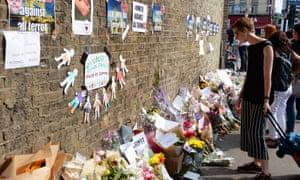Russia-linked Twitter accounts 'tried to divide UK' after terrorist attacks- The Guardian

In this article, University researchers find at least fake 47 social media accounts, linked to Russia, that posted at least 475 messages, reposted more than 153,000 times. They were used to influence and interfere with public debate in the aftermath of four terrorist attacks in the UK this year.
- Of the 47 accounts, eight were especially active, posting at least 475 tweets about the four attacks, which were reposted more than 153,000 times.
- There were multiple instances of them “@ing” Tommy Robinson, former leader of the English Defence League, and Nigel Farage, the former leader of Ukip.
- Team, led by Prof Martin Innes, who directs the CSRI, concluded the use of Russian-linked social media to engineer social division in the UK, including through Twitter
The account used were to ramp up the debates and discord admits times when terrorist attacks happened in the UK. These account were aimed at "thought communities" which aligned with their identities even going far enough to "@ing" Tommy Robninson and Nigel Farage. The report went on to say:
- “Terrorist violence is fundamentally designed to ‘terrorise, mobilise and polarise’ its audiences, so if social media platforms are being ‘weaponised’ by third parties to amplify these effects, then they need to be required to urgently do something to mitigate this.
This shows how social media and the growth in technology is already a hub for mis information between audiences and where social media is being 'weaponize' to spread their specific ideologies. How powerful enough people are to hide and leading to teams of people to try and stop them from continuing false accusations and false news on social media which if caught on can spark a thread of gullible people to believe in it.
No comments:
Post a Comment